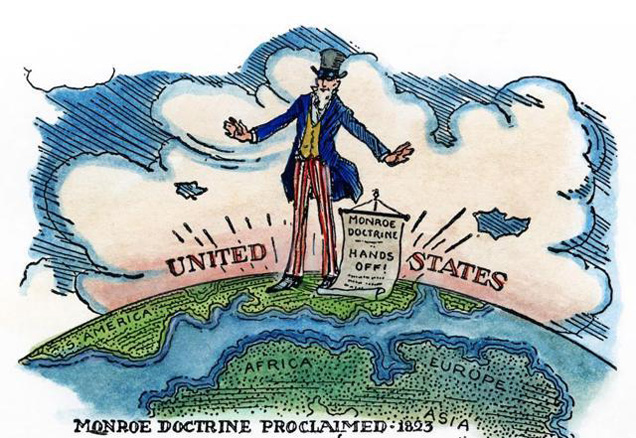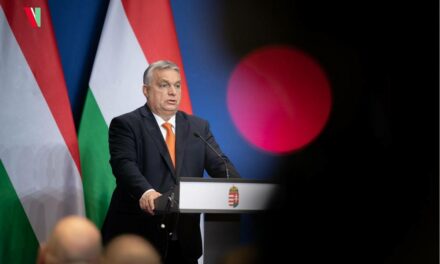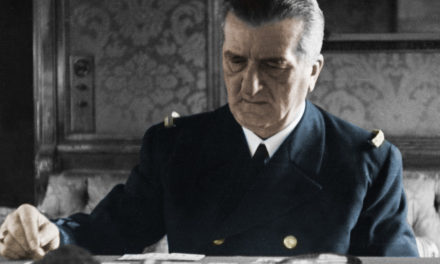Russia is seeking to create a new world order that uproots the status quo and can no longer insulate it from the capital and technology it needs for long-term security and prosperity, writes Clint Reach at The National Interest .
Geopolitical forecasting is an imperfect art. Throughout the Cold War, the Soviets confidently asserted to the end that the forces of socialism would prevail over the decadent and corrupt capitalist model. American leaders, for their part, were sure that if Vietnam became communist, it could mean the end of the spread of democracies in the region and around the world.
Even when the forces shaping geopolitics are clear, the correct conclusion is difficult. In the late 1890s, a Polish banker named Jan Bloch predicted a terrifying future war in Europe, then claimed that such a war would be too destructive and illogical. Then the First World War broke out, and it was just as terrible as he had predicted.
States regularly prepare forecasts to develop their national security strategy. The United States Department of Defense tries to predict how the geopolitical situation may develop in order to make decisions about acquisitions, operational concepts, and force construction. Russia uses a similar approach, which is mandated by the Law on Strategic Planning.
But such state forecasts are not primarily useful for their accuracy, but rather for showing what a desirable or undesirable future a country envisions. And that says a lot about how you can behave to get the results you want.
The world can move in two directions. The first is one in which the US continues to dominate the international system in ways that threaten Russian interests—for example, through sanctions that deny Russia access to capital and technology. And the second is a world where the global influence of the USA is declining and Russia is less inhibited in building military power and regional cooperation.
Ultimately, the future will be determined by the sustainability of the governance and economic models of the defenders of the status quo and its challengers – Russia and China.
These models are under ideological and practical attacks, both externally and by domestic actors who want to move their country in a different direction.
How does Russia build its "VPO" forecast?
Russian forecasts begin with an analysis of the global situation: what forces are shaping it? What courses can the international system run? How does all this affect the dynamics of the great powers, the nature of great power competition, technological development and the war of the future? They will decide whether Russia can - and if so, how - improve its military potential in the long term. For example, if the US is the dominant player with strong allies, this may limit Russia from fully exploiting its economic advantages, accessing foreign capital, or acquiring the most advanced technology. Conversely, a decline in US influence would make it easier for Russia to increase its military power, keeping pace with its competitors.
From Russia's perspective, this would lead to a fairer distribution of global power and reduce the threat to it.
For this global situational analysis, Russian forecasters provide military-specific forecasts, such as global weapons development and military development and how it will be developed. This is "VPO" - a Russian term for the global military-political situation. The VPO describes the likelihood, nature and arena of a future great power war after taking into account Russia's strategic deterrence capability.
For Russia, the red line represents a situation in which its military might would not prevent an invasion by an adversary with greater military potential.
The most common Russian example of this is a scenario—perhaps in the 2040s—in which the United States and its allies build up an arsenal of long-range conventional precision strike devices and deploy a robust missile defense architecture around the world to negate the credibility of a retaliatory Russian nuclear strike. .
Globalization as a basic issue
Russian analysts consistently argue that the most important variable in the next twenty years will be the nature of globalization. According to their predictions, "intensive globalization" will be of a "hegemonic nature" where the US dominates the international system and is able to "impose its will on all actors in international relations without exception." Unsurprisingly, this is the worst possible outcome for Russia. According to a 2018 forecast, the biggest obstacle to Russian technological development is “intensive globalization” due to, among other things, Western sanctions.
This analysis found that the US's potential, which includes both military and non-military indicators, will be 60 percent greater than Russia's by 2040. And that doesn't include allies like the UK, Germany, France and Japan. The end result? In times of war, Russia would be challenged to defeat an alliance with such a latent power advantage—especially given that great power wars often last far longer than expected, favoring the stronger side in a protracted conflict. But "intensive globalization" increases Russia's disadvantage even in peacetime by gradually developing its military forces throughout Europe and in some parts of Asia, while at the same time making the development of Russian military technology impossible.
The counter-trend, which Russia estimates could create the most favorable geopolitical environment, is a multipolar world order (Bipolarity 2.0), which means the sharing of power among a bloc of non-Western countries such as China, Russia and India, who "refuse to give in to US global to his claim to hegemony". In this scenario, by 2040, China will surpass the US in terms of military potential, and the gap between Russia and the US will shrink to 20 percent. In this case, the impact on American allies is negligible.
According to Russian analysts, the basis of this "non-Western" coalition is the BRICS countries (Brazil, Russia, India, China and South Africa) and the Shanghai Cooperation Organization.
This bloc will have a different vision of global order that is more tolerant of autocratic regimes; over time, it will become stronger and more globally influential, and therefore better equipped to counter US attempts to shape the international system to its liking. This would make the power dynamics more favorable for Russia, and at the same time reduce the military threat. The scenario of a multipolar world order suggests a more divided Europe, which could come about if it succeeds in pushing back the integrative institutions built up over the past decades. Russia believes that this scenario would lead to less resistance to its policies, less restrictions on its economic activities and access to technology and capital.
So Russia will use all the means at its disposal to make the prophecy of a multipolar world order come true.
One of the most important of them is the non-Russian narrative, according to which the "liberal elites" impose socio-cultural norms on their societies that do not correspond to the beliefs, desires, and expectations of the citizens. Russia therefore proclaims itself as the defender of so-called traditional values, which is threatened by the politics of Western elites.
A long-term battle of wills
US hegemony in the international system is likely to have negative economic and military consequences for Russia in the next two decades. The direct use of military force against the United States or NATO cannot be ruled out, but Russian analyzes - and Putin's own statements - show quite clearly the great power differences between the two sides and the consequences of a nuclear war.
Russia is therefore seeking to create a new world order that will abolish the status quo and that can no longer isolate it from the capital and technology it needs in the long term to create security and prosperity.
But does Russia have the means to realize this vision? The overall power differential between NATO and Russia is enormous, and the US currently has a strong system of alliances and partnerships in both Europe and Asia. Russia's success depends in part on whether the United States and its allies make costly domestic and foreign policy mistakes that damage their own reputations. Could success also depend on the continued stability of China and India, and whether they are willing to challenge US positions on global issues over time?
Since the contest is likely to revolve around socio-cultural as well as military issues, the Russian challengers will seek to exploit the grievances of those groups who sympathize with "traditional" values, or are the least agnostic in such debates. The United States and its allies must expect an intensifying political, economic, and informational confrontation without agreed rules. The stake is clear. Any shift towards a multipolar world order could have many ramifications for the US and its allies, especially if an influential bloc emerges that promotes the rise of the non-Western world.













